简体中文
繁體中文
English
Pусский
日本語
ภาษาไทย
Tiếng Việt
Bahasa Indonesia
Español
हिन्दी
Filippiiniläinen
Français
Deutsch
Português
Türkçe
한국어
العربية
Think You’re Too Smart to Fall for an Investment Scam?!
Abstract:Investment scams are no longer the domain of obvious fraudsters and badly written emails. Today’s scams are polished, convincing, and alarmingly professional. They mimic the language and appearance of legitimate investment firms, targeting everyone from novice investors to seasoned professionals. A single mistake could wipe out years of savings. But by learning to spot the red flags early, you can protect yourself and your finances from these increasingly deceptive traps.
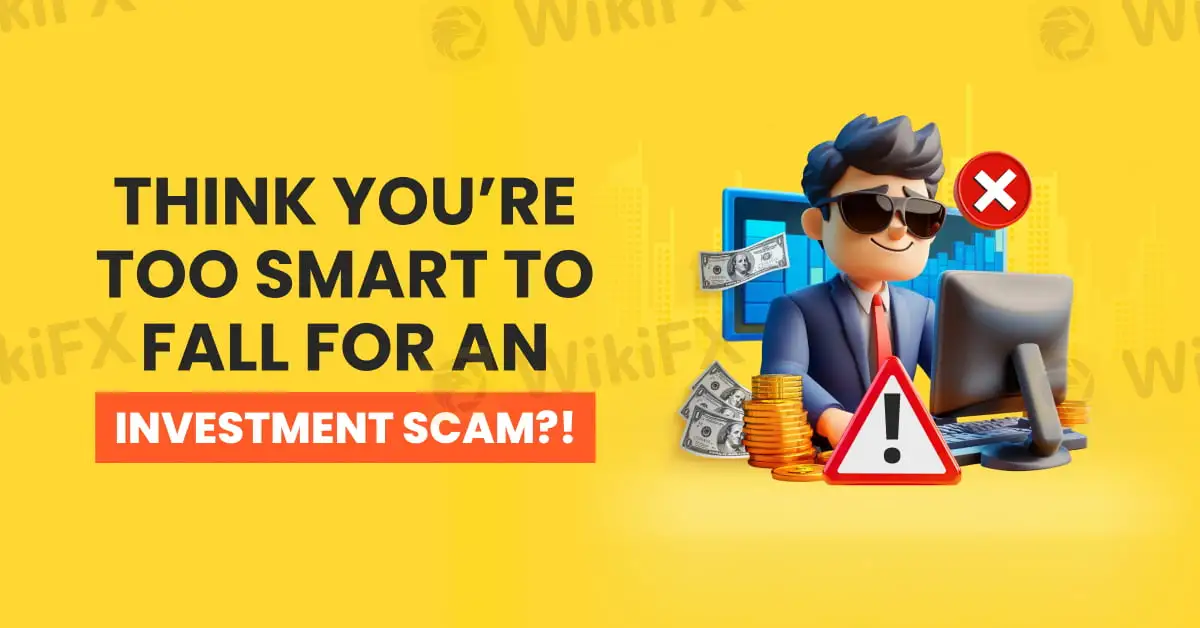
Investment scams are no longer the domain of obvious fraudsters and badly written emails. Todays scams are polished, convincing, and alarmingly professional. They mimic the language and appearance of legitimate investment firms, targeting everyone from novice investors to seasoned professionals.
The stakes are high. A single mistake could wipe out years of savings. But by learning to spot the red flags early, you can protect yourself and your finances from these increasingly deceptive traps.

If someone promises you sky-high returns, especially with phrases like “guaranteed profits” or “double your money in weeks”, alarm bells should be ringing. Fraudsters rely on greed and urgency, knowing that inflated returns are tempting. But in reality, no legitimate investment is risk-free, and high returns always carry proportionate risk.
What to do:
Compare the advertised returns with average market performance. Most long-term investments grow slowly and steadily. If a product promises more than 8–10% annually, or even monthly, with zero risk, its likely a scam. Always remember: if it sounds too good to be true, it probably is.

Scammers don‘t want you to think too much as they want your money quickly. That’s why they use high-pressure tactics such as “this offer expires today” or “we‘re only accepting a few more investors.” They’ll discourage you from taking time to do your research or speak with a financial adviser.
What to do:
Legitimate investments don‘t expire overnight. Take your time. Ask for all documentation, and don’t be afraid to walk away if you feel rushed or uncomfortable.

Many scams operate outside the reach of financial regulators. They may provide impressive-looking documents or websites, but no real oversight backs them. Some even pose as licensed firms, using cloned websites or fake registration numbers.
What to do:
In the UK, always check with the Financial Conduct Authority (FCA). Their online register allows you to verify whether a firm is authorised. If you‘re outside the UK, your country’s financial regulatory body (like the FSCA in South Africa or SEC in the US) will have similar tools. To do this in just a few clicks, download the free WikiFX mobile application that houses all the information you need of over 50,000 investment firms worldwide.


Fraudsters often hide behind technical jargon. Beware of those claiming they use “AI-powered algorithms,” “quantum trading models,” or “blockchain arbitrage.” They avoid explaining how the investment actually works and hope youll be too intimidated to ask.
What to do:
Ask for a clear, simple explanation. If they can't provide one or try to belittle you for asking, then thats a red flag. A legitimate adviser should help you understand how your money is being used.

Whether its a cold call, unsolicited email, or even a direct message on LinkedIn, scammers often pretend to be financial professionals with a unique opportunity “just for you.” They may use fake reviews, paid actors in testimonials, or even impersonate known figures to gain your trust.
What to do:
Be cautious with any investment pitch that comes to you unsolicited. Look up the company independently. Dont use any links they send. It is best to go directly to official websites and regulatory registers. And never be swayed by a glossy brochure or Instagram post of someone lounging on a yacht.

Disclaimer:
The views in this article only represent the author's personal views, and do not constitute investment advice on this platform. This platform does not guarantee the accuracy, completeness and timeliness of the information in the article, and will not be liable for any loss caused by the use of or reliance on the information in the article.
Read more
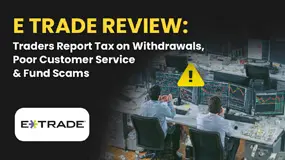
E TRADE Review: Traders Report Tax on Withdrawals, Poor Customer Service & Fund Scams
Has your E Trade forex trading account been charged a withholding tax fee? Did your account get blocked because of multiple deposits? Did you have to constantly call the officials to unblock your account? Failed to open a premium savings account despite submitting multiple documents? Is fund transfer too much of a hassle at E Trade? Did you find the E Trade customer support service not helpful? In this E Trade review article, we have shared certain complaints. Take a look!
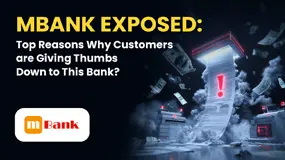
mBank Exposed: Top Reasons Why Customers are Giving Thumbs Down to This Bank
Do you find mBank services too slow or unresponsive? Do you find your account getting blocked? Failing to access your account online due to several systemic glitches? Can’t perform the transactions on the mBank app? Do you also witness inappropriate stop-level trade execution by the financial services provider? You are not alone! Frustrated by these unfortunate circumstances, many of its clients have shared negative mBank reviews online. In this article, we have shared some of the reviews. Read on!
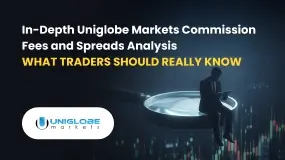
In-Depth Uniglobe Markets Commission Fees and Spreads Analysis – What Traders Should Really Know
For experienced traders, the cost of execution is a critical factor in broker selection. Low spreads, fair commissions, and transparent pricing can be the difference between a profitable and a losing strategy over the long term. This has led many to scrutinize the offerings of brokers like Uniglobe Markets, which presents a tiered account structure promising competitive conditions. However, a professional evaluation demands more than a surface-level look at marketing claims. It requires a deep, data-driven analysis of the real trading costs, set against the backdrop of the broker's operational integrity and safety. This comprehensive Uniglobe Markets commission fees and spreads analysis will deconstruct the broker's pricing model, examining its account types, typical spreads, commission policies, and potential ancillary costs. Using data primarily sourced from the global broker inquiry platform WikiFX, we will provide a clear-eyed view of the Uniglobe Markets spreads commissions prici
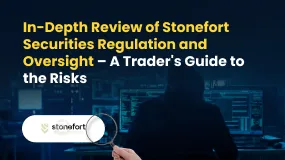
In-Depth Review of Stonefort Securities Regulation and Oversight – A Trader's Guide to the Risks
For experienced traders, the process of selecting a new broker transcends a simple comparison of spreads and leverage. It is a meticulous due diligence exercise where the integrity of the broker's regulatory framework is paramount. Stonefort Securities, a relatively new entrant in the crowded brokerage space, presents a complex and often contradictory profile. On one hand, it boasts a modern MT5 platform and a stream of positive user testimonials. On the other hand, it is shadowed by severe regulatory warnings that question the very foundation of its operations. This in-depth review focuses on the core issue for any long-term trader: Stonefort Securities regulation and oversight. We will dissect the broker's corporate structure, scrutinize its licensing claims, and analyze what the data implies for trader protection and fund security. For traders evaluating whether Stonefort Securities is a trustworthy partner, understanding these details is not just important—it is essential.
WikiFX Broker
Latest News
In-Depth Uniglobe Markets Commission Fees and Spreads Analysis – What Traders Should Really Know
WikiFX's New Evaluation of ATM Capital LTD: Does its License Protect the Arab Investor?
Is Axi Legit? A Data-Driven Analysis of Its Regulatory Standing and Trader Feedback
How a Fake Moomoo Ad Led to the “New Dream Voyage 5” Scam
FXPesa Review: Are Traders Facing High Slippage, Fund Losses & Withdrawal Denials?
Trive Investigation: High Score, Hidden Risk - The Profit Paradox
CMC Markets Australia Revenue Surges 34%, But High-Net-Worth Clients Face Tax Phishing Threat
Bessent believes there won't be a recession in 2026 but says some sectors are challenged
mBank Exposed: Top Reasons Why Customers are Giving Thumbs Down to This Bank
Young Singaporean Trader Grew USD 52 into a USD 107,700 Portfolio
Currency Calculator



